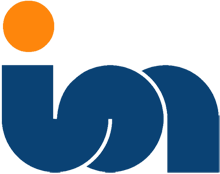THE COMPANY – ION TRADING
ION Trading is the market leader in providing high performance solutions for electronic fixed income markets.
With offices in multiple locations including Berlin, Frankfurt, London, New York, Tokyo, Sydney, Pisa, Dublin, Paris and Madrid, we are a rapidly expanding, dynamic and committed company where candidates with the right attitude will find great opportunities for career development.
Our customers include the top tier investment banks where we have long, well-established relationships. Our international environment offers all employees great opportunities for career development within the company.
ION Trading is the market leader in providing high performance solutions for electronic fixed income markets.
With offices in multiple locations including Berlin, Frankfurt, London, New York, Tokyo, Sydney, Pisa, Dublin, Paris and Madrid, we are a rapidly expanding, dynamic and committed company where candidates with the right attitude will find great opportunities for career development.
Our customers include the top tier investment banks where we have long, well-established relationships. Our international environment offers all employees great opportunities for career development within the company.
C# Software Engineer /
Software-Entwickler GUI .NET
(m/w)
THE POSITION – SOFTWARE ENGINEER
We are looking for highly motivated and result-driven Software Engineers to support our Research & Development Team in central Berlin (Prenzlauer Berg / Friedrichshain).
Qualifications: Degree in Software Science or Computer Engineering and knowledge in Java or C# are essential as well as very good English skills.
Desired Experience:
WE OFFER
We are looking for highly motivated and result-driven Software Engineers to support our Research & Development Team in central Berlin (Prenzlauer Berg / Friedrichshain).
Qualifications: Degree in Software Science or Computer Engineering and knowledge in Java or C# are essential as well as very good English skills.
Desired Experience:
- Windows Application GUI development with C#
- Client facing interactions
- Fixed Income Markets
- WPF
WE OFFER
- Dynamic job with high responsibility in a thrilling environment
- Exposure to soft real-time, financial markets software development
- Working in a young and creative team
- Secure job with flexible working times and fixed & performance related remuneration
